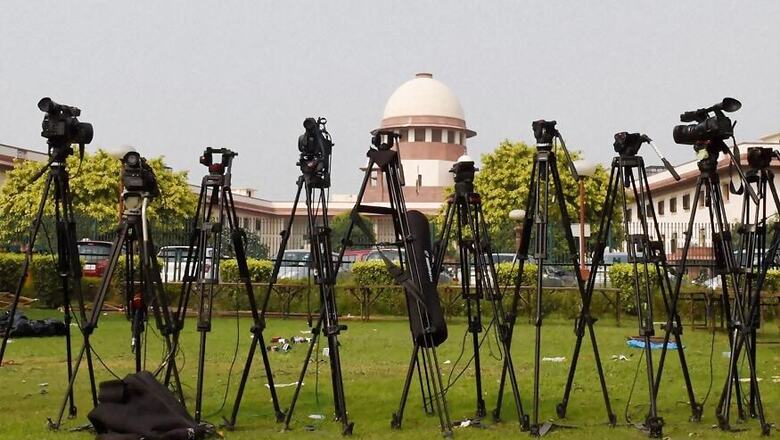
views
New Delhi: As it ruled in favour of taking on record new documents in the Rafale deal case, the Supreme Court on Wednesday emphasised on the freedom of press in strengthening the democracy in the country and also warned against the "disturbing trend of bias" by media in recent times.
A three-judge bench, headed by Chief Justice of India Ranjan Gogoi, had the occasion to write about the freedom of press in the wake of the government's objections to news reports published by English newspaper The Hindu, using documents relating to the Rafale case that were touted as 'secret'.
While Attorney General KK Venugopal had argued that these news reports and the illegally obtained documents cannot be taken on record in ten review petitions, the bench today held that "the right of such publication would seem to be in consonance with the constitutional guarantee of freedom of speech".
The judgment, authored by the CJI for himself and Justice SK Kaul, added that the publication of the said documents reminded the bench of the consistent views of the Supreme Court upholding the freedom of the press in a long line of decisions since 1950.
It made another crucial point that there was no legal provision that could stop publication of a document marked as 'secret', or restrain such papers to be submitted in the court.
"There is no provision in the Official Secrets Act and no such provision in any other statute has been brought to our notice by which Parliament has vested any power in the executive arm of the government either to restrain publication of documents marked as secret or from placing such documents before a Court of Law which may have been called upon to adjudicate a legal issue concerning the parties," the judge maintained.
Writing a separate but concurring judgment, Justice KM Joseph also batted for the freedom of press and noted that the press in India has greatly contributed to the strengthening of democracy in the country.
"It will have a pivotal role to play for the continued existence of a vibrant democracy in the country," said Justice Joseph, adding a caveat that the stream of information that flows from it, "must remain unpolluted by considerations other than truth."
He said the press must remain fearless and free from biases, for transmitting biased information due to personal, political or financial considerations betrays true freedom.
"The ability of truth to be recognised by a discerning public in the supposedly free market place of ideas forms much of the basis for the grant of the unquestionable freedom to the Press including the Media Houses," said Justice Joseph.
According to the judge, if freedom is enjoyed by the Press without a deep sense of responsibility, it can weaken democracy.
Justice Joseph also regretted: "In some sections, there appears to be a disturbing trend of bias. Controlling business interests and political allegiances appear to erode the duty of dispassionate and impartial purveying of information."
He reminded the press of the public duty it has in disseminating truthful information as its freedom continues to be protected under the Constitution.


















Comments
0 comment